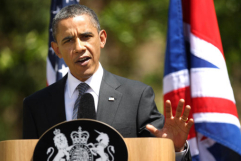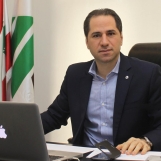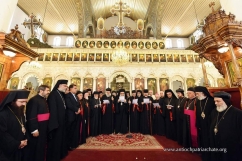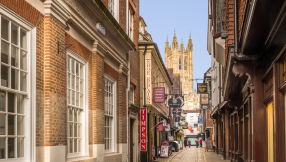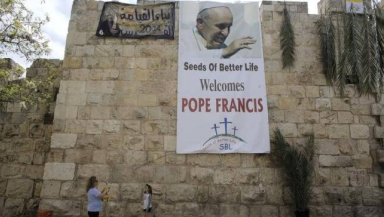
Palestinian Christians are expressing alarm over the allegedly growing number of "radicalized" Muslim in the Palestinian Territories and Israel, which they believe are linked to the Islamic State's extremist campaign in the Middle East and North Africa.
Anti-Christian hostility has erupted in the form of physical attacks, provocative speech, and seditious billboards, the Morning Star News reported on Thursday.
Nashat Filmon, general director of the Palestinian branch of The Bible Society, said the recent hostilities in Jerusalem, including an incident last month wherein an Islamic mob attacked the Christian quarter, are linked to ISIS.
"The dark ideology of ISIS is spreading all over the region like cancer," said Filmon. "This is also including the Holy Land. Christians, overall, live here in peace and harmony with Muslims in Jerusalem and the West Bank, but incidents do happen from time to time, and it's true that these incidents have recently increased, especially in the Old City of Jerusalem."
According to leaders of Palestinian Christians, not all Muslims have become extremists but a large enough number has began to make Christians feel in danger or openly unwanted, compared to previous cases wherein conflicts only occur among individuals.
"Since I was a child this has been happening in the Christian Quarter and in the Muslim Quarter [in Jerusalem's historic Old City area], but not in this way," said Rami Fellemon, a Palestinian Christian and director of Jerusalem Evangelistic Outreach based in East Jerusalem.
"Many people are sitting here, and in their own mind they are thinking, 'What the heck are we doing here in this country? Let's leave the country.' Others have resentment toward Muslims now. They don't understand why they are doing this in such a way."
"They feel like even more of a minority now and feel hated by both sides [Jews and Muslims]," Fellemon said, as Christian-owned properties are also attacked by ultra-Orthodox Jewish zealots while Israeli officials impose hardships on Palestinians.
"It's a terrible feeling. Feeling afraid. Feeling cornered. Feeling, 'Maybe this is not my place. Maybe I just need to get out of here. I don't want to deal with them. I don't trust them anymore,'" Fellemon said.
The traditional elders council between Muslim and Christian leaders is believed to have mitigated the hostility on May 11 as Muslim leaders apologized for the actions of the mob.
An "honor pact" was issued to prevent future attacks but on May 24, another group of Christians was attacked by Muslims near the Damascus gate.
Filmon said the ISIS as well as "ignorant individuals or groups or others who are interested in making a problem" could have been the inspiration behind some incidents.
"Are they [those who attacked the Christian quarter] ruled by ISIS? I don't think so," he added. "Are they inspired by ISIS? It is hard for me to answer yes or no because ISIS is inspired by radical Islam. So maybe I would answer and say, 'Yes, they are inspired by radical Islam.'"
Filmon asked for prayers to maintain the good relations between Muslims and Christians in the Territories.
"Pray for the relationships between Muslims and Christians to be good despite all of the problems," he said. "Pray that the Christians would act as they are called to be, 'salt and light' and a living testimony. Pray against this dark, satanic, and attacking spirit of fundamentalism, and for the Christians to respond in a way that reflects Christ."
Earlier last month, Sheikh Issam Ameera, an imam at the Al-Aqsa mosque, posted online a video of a sermon titled "The Islamic State is the keeper of religion and state," in which he indicated that Muslims must constantly be at war with the "polytheist enemy," referring to Christians and Jews.
In February, an inflammatory billboard, which told Christians in Israel's Muslim-dominated town of Nazareth not to spread their faith following the Koran, was posted just outside the Greek Orthodox Church of the Annunciation.










